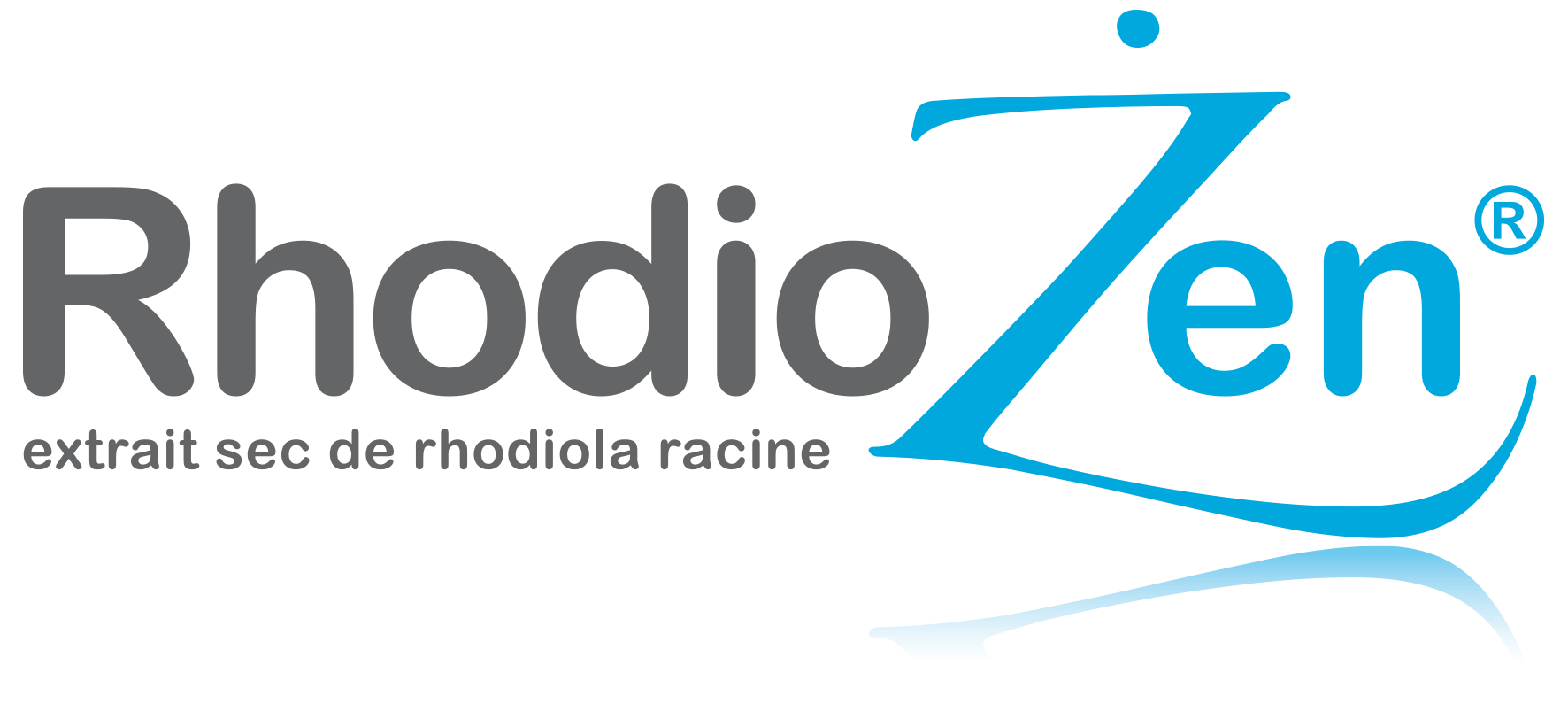Rhodiozen – Preserving your physical and mental well-being.
RhodioZen© is a specific extract of the roots of Rhodiola rosea L. Considered an adaptogenic ingredient, Rhodiola helps to boost resistance to various stress factors. As a dietary supplement, it contributes to optimal mental and cognitive activity.
Thank you for your request.
We’ll get back to you as soon as possible!
Continue on page View our catalogWhy choose RhodioZen©?

What is RhodioZen©?
RhodioZen© is derived from the emblematic Rhodiola rosea L. This hardy plant is endemic to the mountainous regions of Asia. RhodioZen© is therefore an ingredient of choice at a time when the effects of stress on health and quality of life are clearly recognized. According to the latest Synadiet observatory, almost half of French people feel stressed and tired. We have developed Rhodiozen© to help maintain normal physical and mental well-being over the long term.
New clinical study
Study design
Clinical study of RhodioZen on resistance training performance.
- Randomized, triple-blind, placebo-controlled crossover study.
- 18 volunteers, average age: 22 years (60% men et 40% de women)
- Exercises: bench press and pull-up press.
Assessment
Method

Cognitive performance
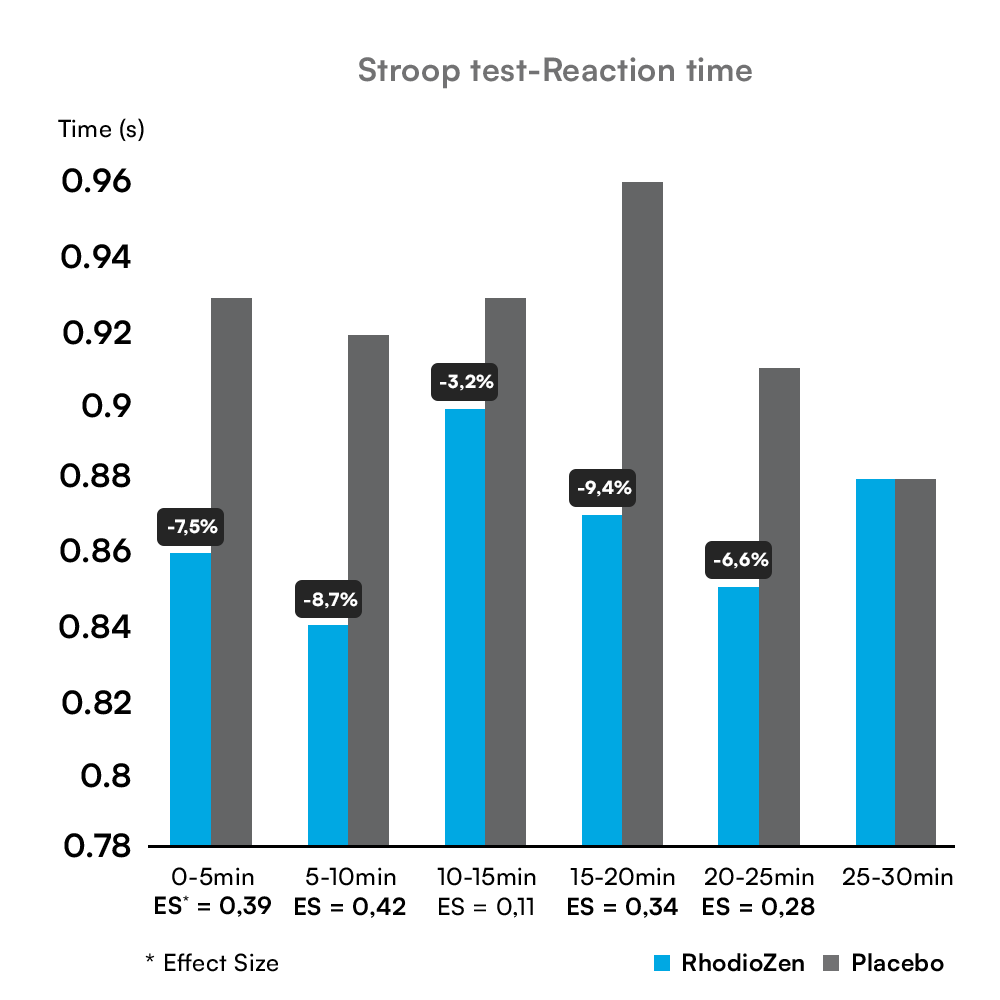
RhodioZen may improves cerebral acuity
by enhancing information processing speed.
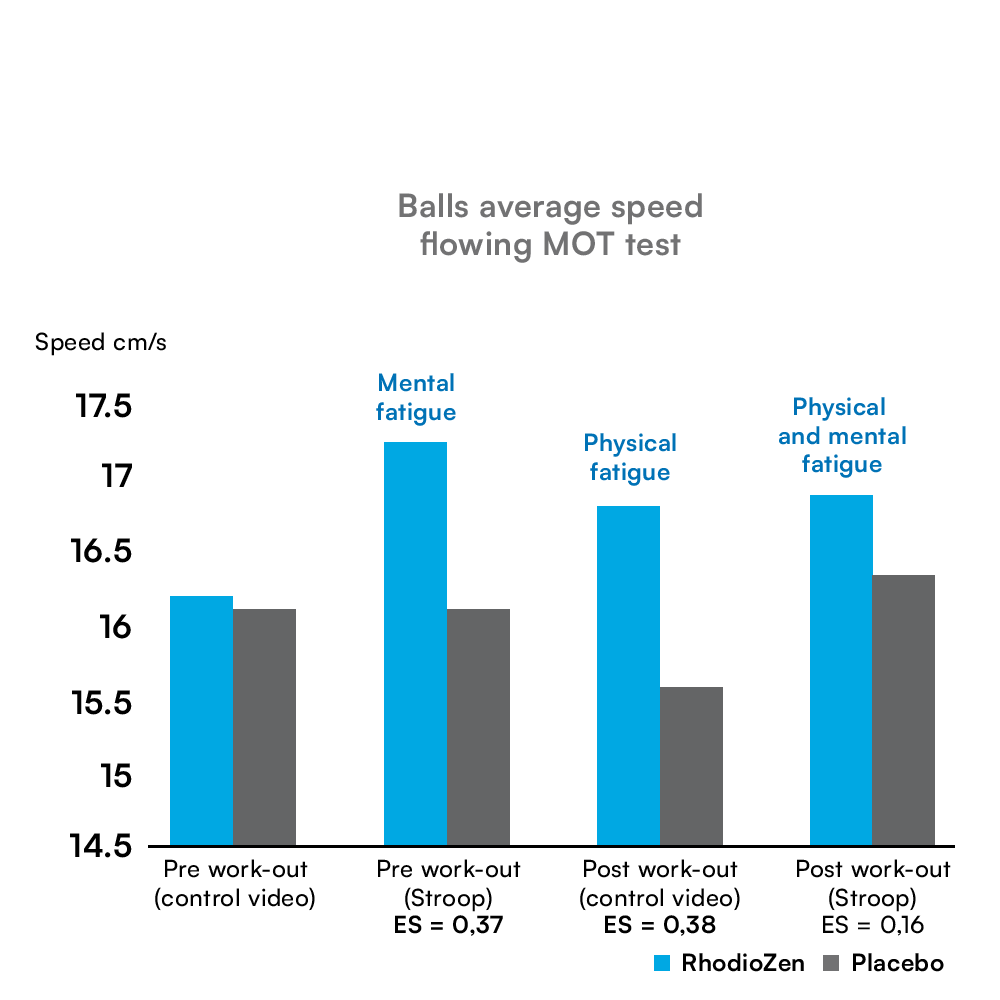
RhodioZen could facilitated cognitive performance recovery after induced physical or mental fatigue.
RhodioZen can improve cerebral acuity and assists cognitive performance recovery after induced physical or mental fatigue.
Training performance
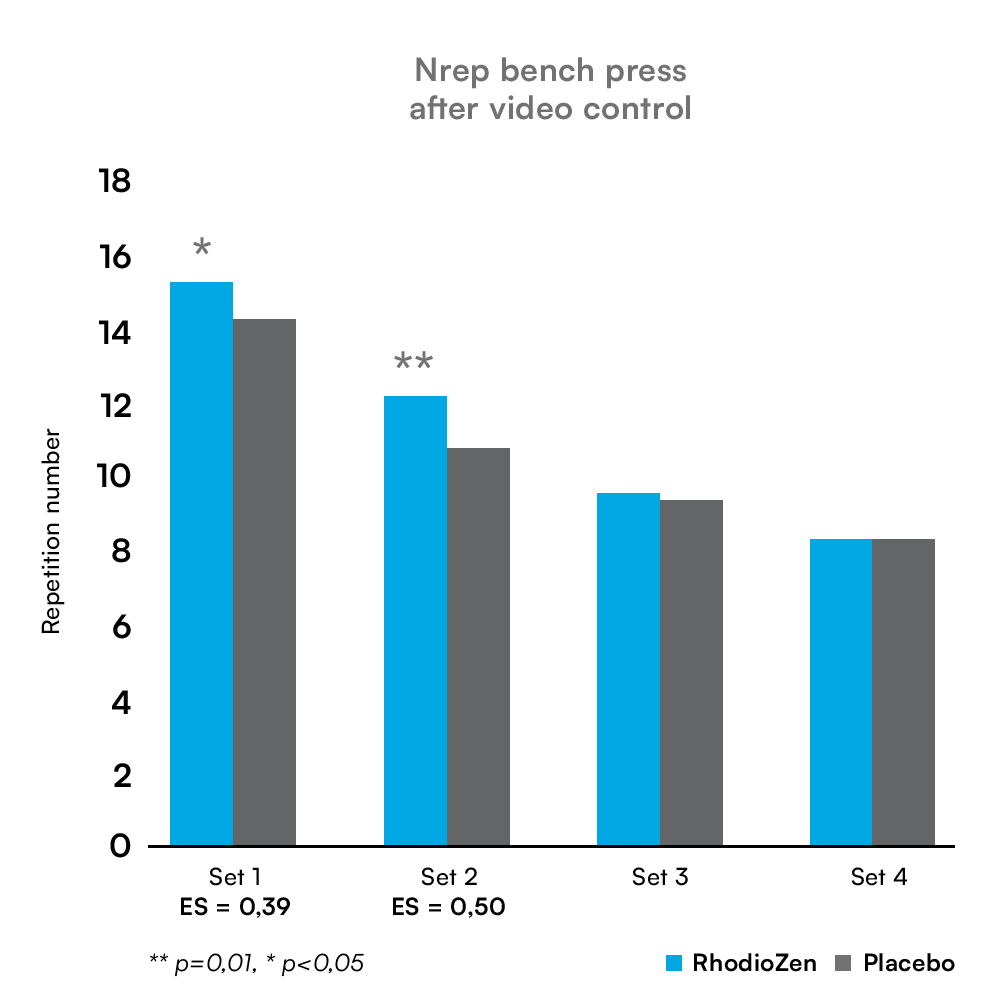
Without induced mental fatigue RhodioZen significantly improved repetition number in bench press over the first 2 sets.
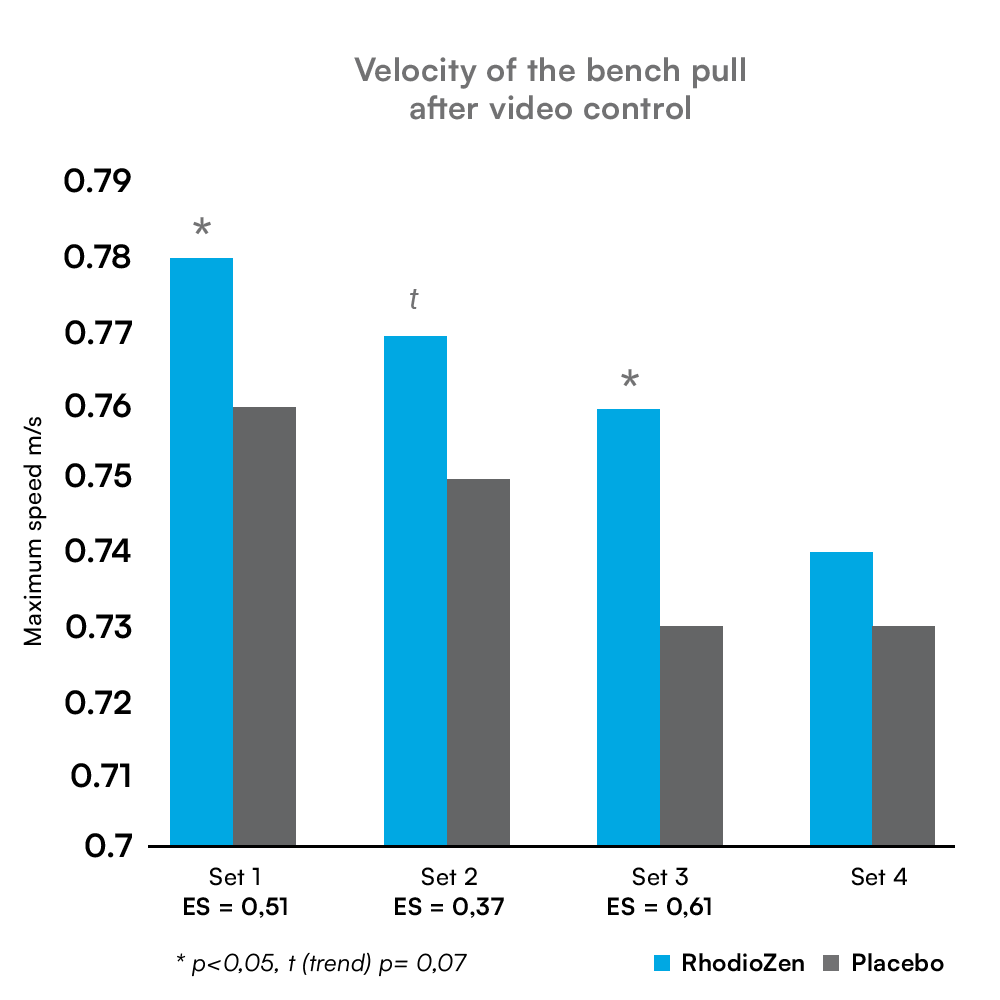
Without induced mental fatigue RhodioZen significantly improved the velocity execution in bench pull over the first 3 sets.
RhodioZen supports anaerobic exercise and explosive strength
A complete, controlled process
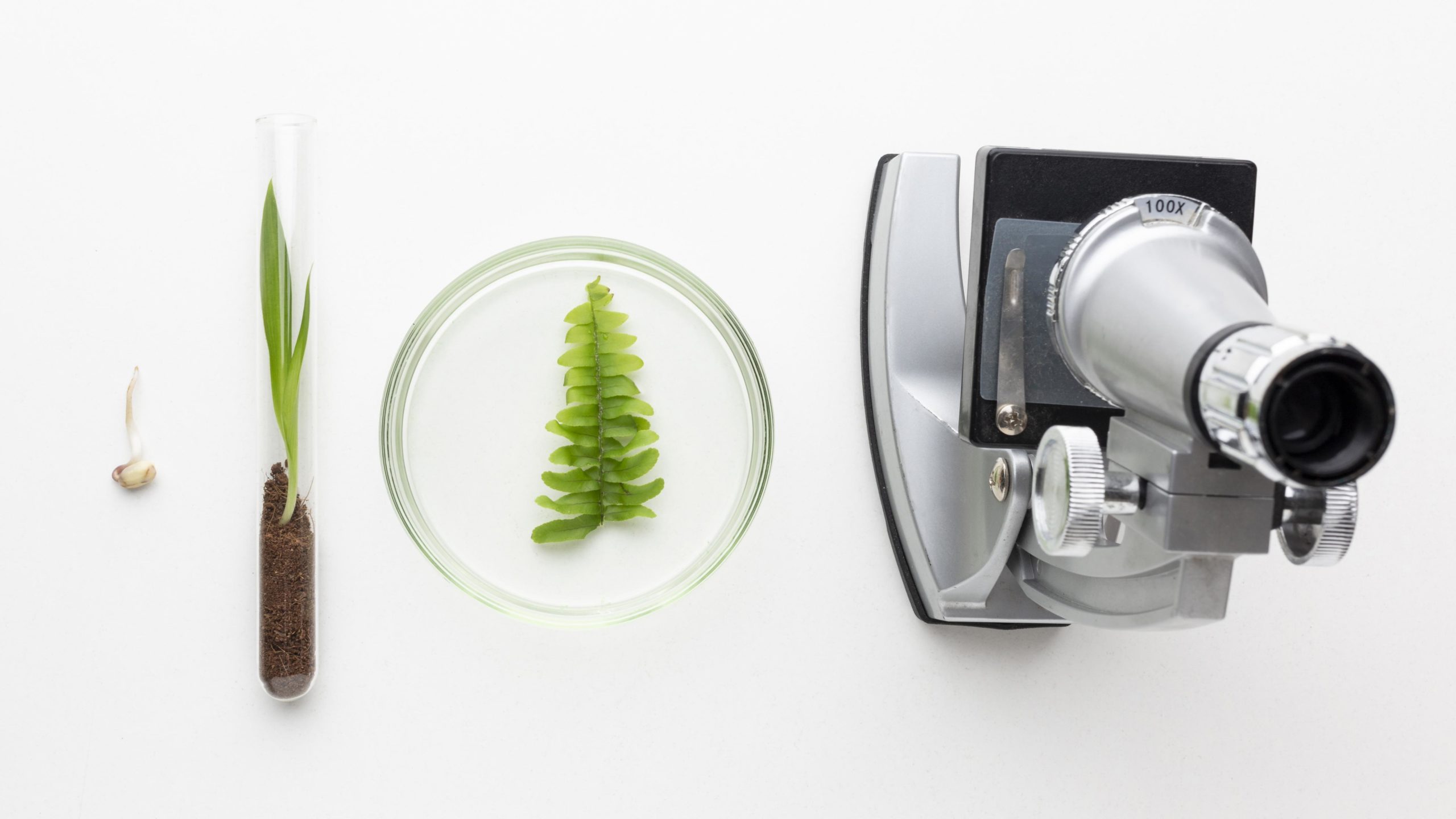
Quality and safety control
We carry out a systematic analysis of various parameters. Through identification and HPLC assay, we check for the presence of the four specific secondary metabolites: Salidroside, Rosavine, Rosarine and Rosine. We also check for contaminants such as PAHs and ETO, as well as microbiological criteria. A control plan is also in place for pesticides, heavy metals and residual solvents.

Traceability control
February 2023 sees the 19th meeting of the Convention on International Trade in Endangered Species of Wild Fauna and Flora (CITES). At the request of the European Union, Rhodiola spp. has been officially included in Appendix II. This lists all species which, while not necessarily threatened with extinction at present, could become so in the future. Any quantity of Rhodiola spp, from collection to import, must be traceable. We have obtained all the necessary permits for its distribution.
A little history?
Rhodiola rosea, also known as rose root or golden root, belongs to the Crassulaceae family and grows mainly in the Himalayan belt, Tibet, China and Mongolia, but is also cultivated in Europe and North America. It is a plant traditionally used in Europe to boost stamina and work performance, and to relieve fatigue, weakness, impotence and other nervous system disorders. In fact, Rhodiola root extract is an adaptogen which acts to increase the body’s resistance to stress, exhaustion and fatigue.
In 1947, Russian researcher Nicolaï Lazarev defined the term “adaptogen” as characterizing ” a substance capable of inducing in an organism a state of non-specific increased resistance enabling it to counteract stress signals and adapt to exceptional effort “. At least 140 compounds have been identified in Rhodiola root extract that could have health benefits, particularly for the nervous system. These include non-polar monoterpene hydrocarbons, geraniol, monoterpenes, cyanogenic glycosides, phenylpropanoids, flavonoids, flavonolignans and other gallic acid derivatives. Other components associated with Rhodiola’s adaptogenic and anti-stress properties are rhodioloside and rosavins, which are powerful inhibitors of the enzymes responsible for degrading dopamine in the brain, notably monoamine oxidase A, as well as controlling the secretion of cortisol, the stress hormone, and ATP production in the brain. Like rhodolia, eleutherococcus(Eleutherococcus senticosus L.) and ginseng(Panax ginseng CA Meyer) are also plants renowned for their adaptogenic properties.1
1 Reflexion paper on the adaptogen concept, European Medicines Agency, Committee on Herbal Medicinal Products, 2008
In the 1960s, the first clinical studies were carried out in Russia to prove Rhodiola Rosea ‘s health benefits. But it was only in the 2000s that Rhodiola Rosea began to arouse the curiosity and interest of consumers in France.
Rhodiola rosea L. is best known and used for stress, thanks to its ability to improve the body’s natural resistance to various physical and mental stressors 1. One study 2 showed that regular intake of Rhodiola rosea L by students significantly improved their general well-being and reduced mental fatigue. In another study of 60 people suffering from burnout, daily intake had an anti-fatigue effect, improving their ability to concentrate. Cortisol levels (a hormone involved in stress) were also significantly reduced by taking Rhodiola rosea L 3.
1. Amsterdam JD, Panossian AG. Phytomedicine. 2016 Jun 15;23(7):770-83. doi: 10.1016/j.phymed.2016.02.009.
2. Spasov A.A. et al. Phytomedicine,2000;7(2):85-89
3. Olsson EM, von Schéele B, Panossian AG. Planta Med. 2009 Feb;75(2):105-12.
